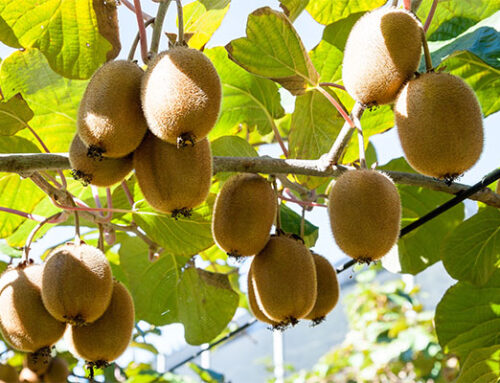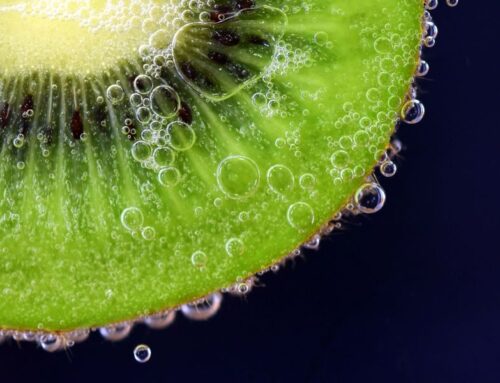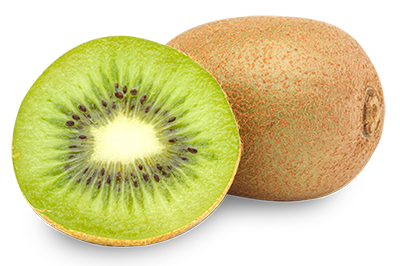Kiwifruit, described in early 12th century China and introduced to Europe in the 18th and 19th centuries, was brought to New Zealand from China in the early 20th century, by the school teacher Isabel Fraser1. The kiwifruit (genus Actinidia) is now an iconic symbol of New Zealand.
Kiwifruit consistently ranks as one of the most nutrient-rich fruits available, providing everyday good health. The high fibre content, vitamins, antioxidants and minerals of kiwifruit drive its superior nutritional value and make it one of the healthiest fruits available.
Did you know that kiwifruit has one of the highest nutrient density and adequacy scores compared to other common fruit?
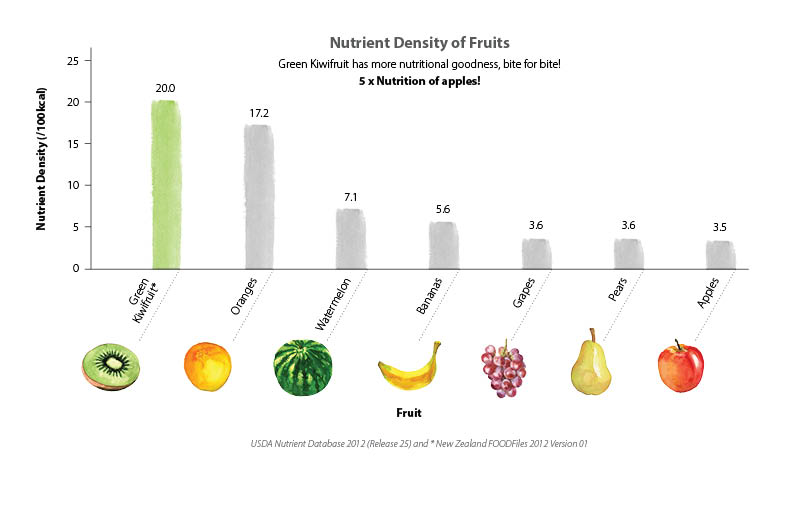
The potential and substantiated health benefits of kiwifruit have been the subject of an increasing number of peer-reviewed studies since 19772-4.
The key nutrients within kiwifruit that lend themselves to these health benefits include the powerful combination of:
-
Vitamin C
- Kiwifruit are a great source of vitamin C, with one green kiwifruit providing 85 mg (recommended daily intakes range from 45 mg – 90 mg).
- The benefits of vitamin C include:
- Supporting the immune system to help reduce the onset and severity of colds and flu;
- Reducing tiredness and fatigue;
- Supporting collagen formation, which is essential for healthy skin, teeth and bones.
-
Dietary fibre
- Kiwifruit has a low glycemic index. This is largely due to the unique hydration properties of kiwifruit dietary fibre – the fibre swells to nearly 3 times its original size which makes uptake of sugars into the bloodstream steadier.
- The kiwifruit dietary fibre also helps to bulk up stool, improve transit time and is fermented in the colon to support the good bacteria in your gut.
-
Actinidin
- Within green kiwifruit is a unique enzyme, called actinidin.
- Actinidin enhances the breakdown of a wide range of food proteins. This can lead to a reduced feeling of overfullness (bloating) after a protein-rich meal.
- By digesting protein faster, essential amino acids are released more quickly which allows them to be taken up and used by the body more readily. This is great for the elderly who have trouble digesting protein and athletes looking to build muscle.
-
Potassium
- A serving of kiwifruit (2 whole fruit) contains as much potassium as a medium banana.
- The health benefits of potassium include relief from stroke, high blood pressure, heart and kidney disorders, and anxiety and stress. It also helps enhance muscle strength, metabolism, water balance, electrolytic functions, and the nervous system.
-
Folate
- As a good source of folate, kiwifruit is ideal for the whole family. Folate is an essential nutrient for cellular growth and development, which is why it is so important during pregnancy and in children.
Actazin is made from New Zealand whole kiwifruit. Gently processed, it retains the many bioactive found in kiwifruit and provides holistic gastrointestinal benefits starting with the aiding of protein digestion in the stomach to the improvement of bowel movement in the colon.
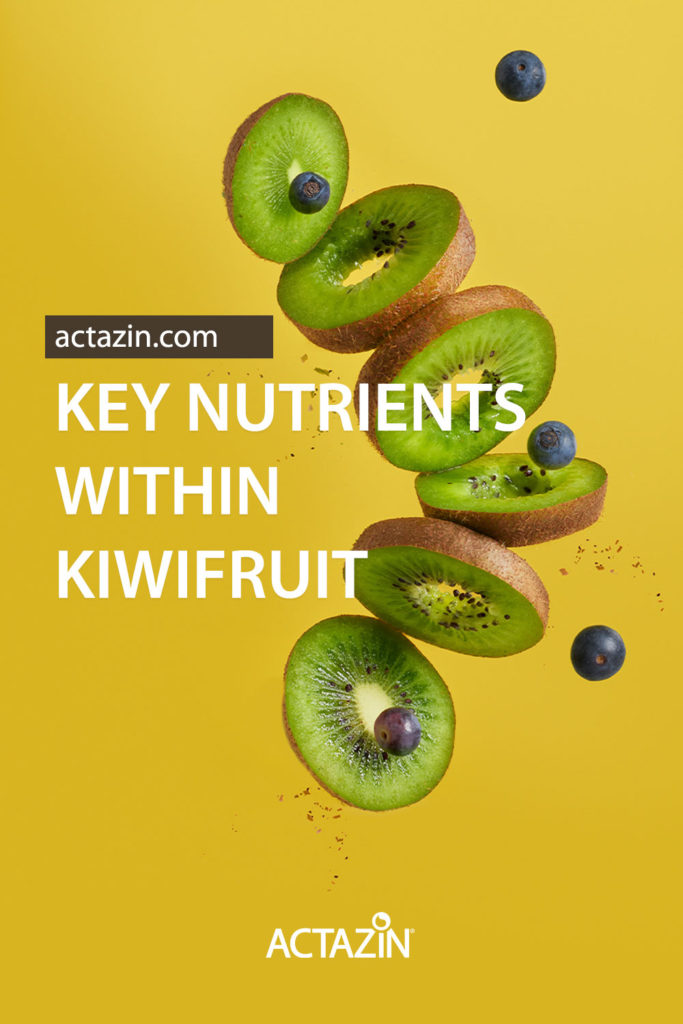
References:
- Ward C, Courtney D. Kiwifruit: taking its place in the global fruit bowl. Adv Food Nutr Res 2013; 68:1-14.
- Stonehouse W, Gammon CS, Beck KL, Conlon CA, von Hurst PR, Kruger R. Kiwifruit: our daily prescription for health. Can J Physiol Pharmacol 2013 Jun; 91:442-7.
- Singletary K. Kiwifruit: overview of potential health benefits. Nutrition Today 2012; 47:133-47.
- Hunter DC, Greenwood J, Zhang J, Skinner MA. Antioxidant and ‘natural protective’ properties of kiwifruit. Curr Top Med Chem 2011; 11:1811-20.


